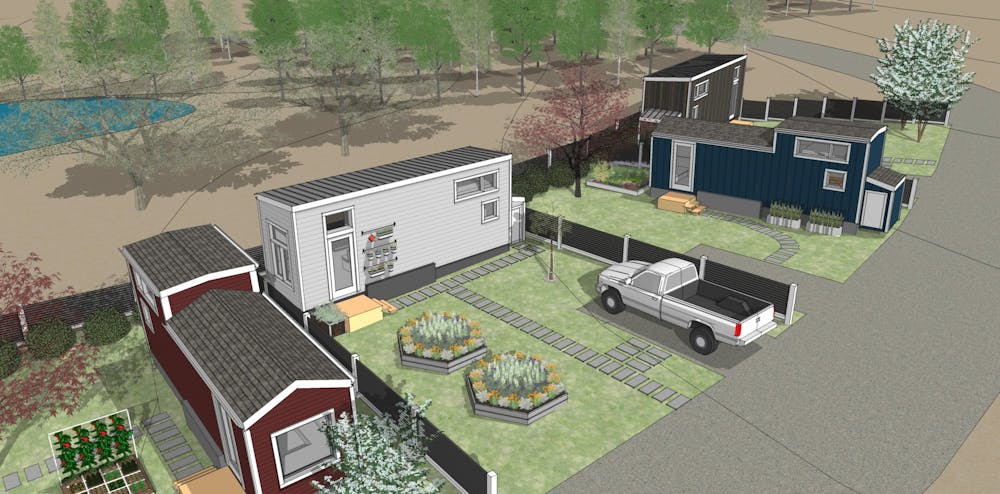In efforts to support formerly incarcerated women and advocate for social justice issues in Alamance County, Kristen Powers joined Benevolence Farm as interim executive director. Now, nearly four years later, she hopes to give back to the residents of Benevolence Farm through launching a tiny house initiative — just one more way to get residents back on their feet.
“I think we, as best we can, try to support the vision and dreams of our residents while they’re with us on the farm and even to a degree after they’ve transitioned off the farm,” Powers said.
Finding housing
Benevolence Farm in Graham, a transitional employment and living program for formerly incarcerated women in North Carolina, is launching an initiative to accommodate a growing number of residents on the farm. Powers said there is a shortage of housing options for residents due to the farm’s capacity growth and large waitlist.
Residents currently reside in communal living areas, but wanted the initiative with the hope of gaining more independence and self-sufficiency, according to Powers.
“They would like to see something like these tiny home communities where it allows us to double our capacity and as well as have a space where residents can stay longer and safely transition into a little bit more of an independent living situation,” Powers said.
Benevolence Farm is partnering with Haven Ventures — a certified B-corp social enterprise that develops housing solutions for underserved communities — to design and construct the tiny houses. Powers said the new tiny house community at Benevolence Farm will consist of six total tiny homes.
Zach Sunderland, an executive director of Haven Ventures, said the organization became involved in the tiny house initiative after visiting Benevolence Farm and hearing about their mission of assisting formerly incarcerated women.
Sunderland said he and his team began communicating with Powers about the tiny house initiative last year and worked with Powers to formulate a design for the tiny house community that was inclusive to all residents and staff on the farm. His team is working with Powers and residents on a one-on-one basis to customize and design the tiny houses.
“It was really their push and their motivation to see this happen,” Powers said.
Making housing tiny
Powers said the tiny homes will look different from a traditional tiny home many may be used to. The design of the tiny homes will resemble a studio apartment and will include one bedroom for each of the residents, according to Powers.
Benevolence Farm has received contributions from individual donors to fund the building of the tiny home. According to Powers, as of June, the donors have helped raise 10% of Benevolence Farm’s $300,000 goal for building the tiny homes and she hopes to receive more donations as well as grants from entities within the state or nationally.
Additionally, Benevolence Farm and Haven Ventures are awaiting approval from Alamance County before they can begin building the tiny homes. Sunderland referred to this process as getting entitlements and explained it could take six months to one year to get approval from the county. Powers said she expects building on the tiny homes to begin at the end of 2021.
Powers and Sunderland both hope the tiny house initiative will provide housing options for underserved communities, such as Benevolence Farm, and give residents on the farm a sense of independence as they transition into a new lifestyle.
“It is critically important to get housing and employment so that they can be able to take full advantage of their second chance,” Powers said.


